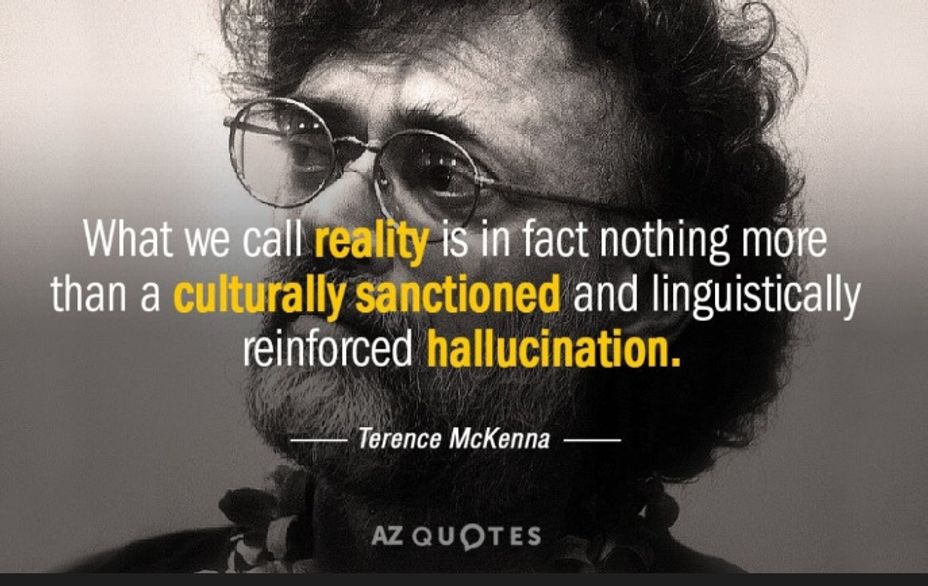I used to think healing meant fixing myself—like I was a broken appliance missing the right part. But mental health doesn’t work that way. It’s not a linear process or a problem you can solve once and be done with. Healing is a daily practice, a commitment to showing up for yourself even when it feels impossible.
Through my journey with ADHD, OCD, PTSD, Bipolar I, BPD, insomnia, an eating disorder, and Major Depressive Disorder, I’ve searched for tools that actually help. I’ve tried medications, therapies, alternative treatments, and countless strategies. Some didn’t work. But some did, and those are the techniques I’m sharing with you today.
This is your Mental Health Survival Toolkit—a collection of practical, proven strategies grounded in real experience. Whether you’re navigating anxiety, battling depression, or managing multiple diagnoses, these tools can help you breathe, reset, and find your way forward.
1. Mindfulness: The Anchor for a Whirlwind Mind
When your thoughts feel like a relentless storm, mindfulness can be the anchor that steadies you. It’s not about achieving perfect calm. It’s about being aware of the present moment—right here, right now.
Try This: The 5-4-3-2-1 Grounding Technique
1. 5 Things You Can See: Look around and notice details—the pattern on your shirt, a shadow on the wall, the way light falls through the window.
2. 4 Things You Can Touch: Feel your feet on the floor, the texture of your chair, the warmth of your hands.
3. 3 Things You Can Hear: The hum of a fridge, distant traffic, your own breathing.
4. 2 Things You Can Smell: Coffee, soap, the faint scent of the air.
5. 1 Thing You Can Taste: A mint, your last meal, or just the taste of your own mouth.
This exercise is like a mental reset button, pulling you out of your head and back into your body. When the storm threatens to sweep you away, let this be your anchor.
________________________________________
2. Deep Breathing: Your Reset Button for Anxiety
When anxiety hijacks your body, your heart races, your chest tightens, and your mind spins out of control. Deep breathing is a message to your nervous system: You’re safe now. It’s okay to stand down.
Try This: Box Breathing Technique
1. Inhale slowly through your nose for a count of four.
2. Hold your breath for four counts.
3. Exhale slowly through your mouth for four counts.
4. Hold for another four counts.
5. Repeat for 4-5 minutes.
This simple practice slows your heart rate, clears your mind, and helps you reclaim control. It’s used by Navy SEALs for a reason: it works.
3. Journaling: Releasing the Pressure Valve
Sometimes your mind feels like a pressure cooker, thoughts swirling and building until you can’t take it anymore. Journaling lets you release that steam.
Try This: The ‘Brain Dump’ Method
• Set a timer for 10 minutes.
• Write everything that comes to mind. No filtering, no worrying about grammar. Just let it out.
• When the timer goes off, take a deep breath, close the journal, and let it be. No need to analyze or solve anything.
Some days the words flow; other days, the page stays blank. That’s okay. The act of writing is the therapy.
4. Movement: Shift Your Body, Shift Your Mind
When you’re stuck in mental fog or emotional quicksand, moving your body can be the catalyst for change. Exercise isn’t just about fitness—it’s about releasing tension, processing emotions, and reminding yourself that you’re alive.
Find Your Movement
• Walk: A simple walk outside can clear your mind and offer a new perspective.
• Stretch or Do Yoga: Gentle movements can help release tension stored in your body.
• Dance: Put on your favorite song and let yourself move, even if it’s just for one track.
You don’t need marathons or gym memberships. Small, consistent movements are enough to shift your energy.
5. Talk Therapy: Letting Your Story Be Heard and Held
Therapy saved my life. Speaking the unspeakable took the weight off my chest. Whether it’s Cognitive Behavioral Therapy (CBT), Dialectical Behavior Therapy (DBT), or just a safe space to talk, therapy offers connection and clarity.
Tips for Finding the Right Therapist
• Don’t be afraid to “shop around” until you find someone who fits.
• Ask for recommendations from trusted sources.
• Remember: A good therapist will challenge and support you in equal measure.
If therapy isn’t accessible, talking to a friend, a support group, or even writing letters to yourself can offer relief.
6. Thought Reframing: Rewrite the Script, Reclaim Your Power
Your thoughts shape your reality. Left unchecked, negative thoughts become self-fulfilling prophecies. Reframing those thoughts is like rewriting a script that no longer serves you.
Example
• Original Thought: “I’m a failure. I can’t do anything right.”
• Reframed Thought: “I’m struggling right now, but that doesn’t mean I’m a failure. I’ve overcome challenges before, and I can do it again.”
Every time you challenge a negative thought, you weaken its hold. You’re not ignoring reality; you’re choosing a perspective that empowers you.
7. Hydration and Nutrition: Small Acts of Self-Care
In the depths of a mental health struggle, the basics often fall apart. Drinking water, eating a meal, or even brushing your teeth can feel monumental. But these small acts of care build a foundation for healing.
Quick Tips
• Keep a water bottle nearby and take small sips throughout the day.
• If cooking feels overwhelming, aim for one nutritious meal.
• Remember: Self-care doesn’t have to be a grand gesture. Sometimes, it’s as simple as eating an apple or drinking a glass of water.
Final Thoughts: Your Healing Journey, Your Toolkit
Healing isn’t about becoming “fixed.” It’s about learning to work with yourself instead of against yourself. Some days, one technique will work better than another—and that’s okay. The goal isn’t perfection; it’s progress.
Every time you use a tool from this toolkit, you’re affirming: I matter. My mental health matters. And that’s a powerful thing.
Share Your Tools: Let’s Build This Toolkit Together
I’d love to hear from you. What therapeutic techniques have helped you on your journey? What’s in your survival toolkit? Share in the comments below, because when we share, we remind each other of one essential truth:
We are not alone.
Together, we’re building resilience, one tool at a time.
Corey Welch
Author | Mental Health Advocate
“Every step forward is proof that the darkness didn’t win.”
#MentalHealth, #MentalHealthAwareness, #TherapyWorks, #Mindfulness, #DeepBreathing, #Journaling, #MovementForMentalHealth, #TalkTherapy, #CBT, #DBT, #ThoughtReframing, #SelfCare, #HealingJourney, #MentalHealthToolkit, #AnxietyRelief, #DepressionSupport, #PTSDRecovery, #BipolarDisorder, #BPD, #ADHD, #Insomnia, #EatingDisorderRecovery, #MentalWellness, #YouAreNotAlone, #Resilience, #PersonalGrowth, #SelfCompassion, #WellnessTips, #MentalHealthMatters, #SurvivalToolkit, #DailyPractice, #CopingStrategies, #hopeandhealing





